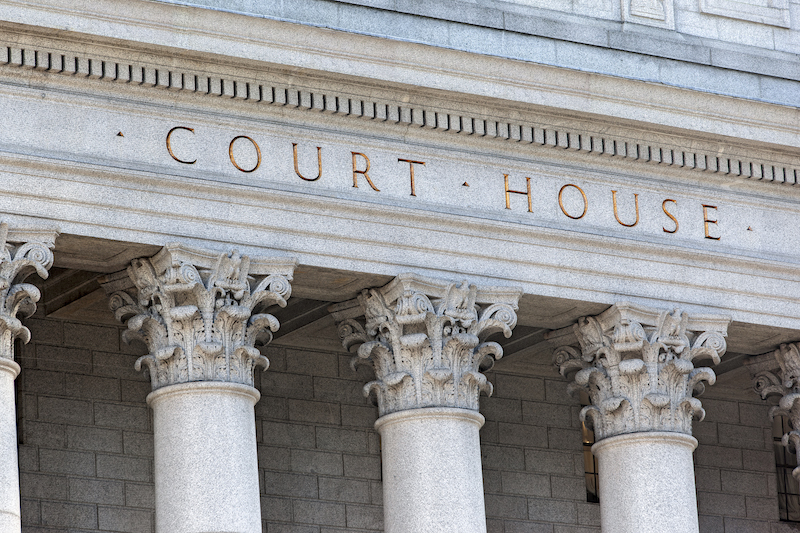
Did you know that in 2017, over 27,000 DUI arrests were made in Illinois? Furthermore, 91% of those who were arrested for DUI, and were eligible to lose their license, did end up losing it. If you find yourself in the unfortunate situation of being arrested for a DUI, you need to know about the potential penalties and how you should proceed.
Lucky for you, if it’s a first-time offense, you might be eligible for court supervision. This can be beneficial to DUI offenders because it doesn’t involve jail time, and you’ll get the opportunity to show the courts that you can behave and not violate the law for a period of time, resulting in a -non-conviction of the DUI charge.
It is time to learn more about Illinois DUI laws, potential penalties, your options, and an answer to the question, “What is court supervision?”
Possible DUI Penalties
In Illinois, you can be arrested for a DUI if you:
- Drive under the influence of alcohol and your blood alcohol content (BAC) is .08 or above
- Drive under the influence of any other illegal substance
- Drive under the influence of “intoxicating compounds”
A first offense DUI arrest is considered a Class A misdemeanor (if bodily harm was caused, the offense might be classified as a felony.)
If you are arrested and convicted of DUI in Illinois, you’ll face both administrative and criminal penalties. Administrative penalties include a license revocation. It’s costly and time-consuming to get your license back, and you’ll also see your insurance premiums increase.
What is Court Supervision for a DUI?
Court supervision is one of the best outcomes for a DUI arrest. When you get court supervision, there is no conviction entered on your record. It’s important to know that court supervision is only a possibility for a first-time offense. If you have a second, or any subsequent DUIs, you’re not eligible.
Court Supervision is exactly what it sounds like. You get a period of time (usually 12 to 24 months), where the court supervises you. If you successfully complete the period of supervision and any requirements added on, there is no conviction entered on your record.
There are certain requirements for the successful completion of court supervision. Some of the possible requirements include:
- Avoiding any additional legal trouble
- Completing alcohol education or treatment
- Payment of all fines and court costs
- Participation in a victim impact panel
- Community service
The requirements will vary based on the court, the offender, and the offense.
What Are the Benefits?
If you get court supervision for a DUI, consider yourself lucky, as it is the least serious punishment for a DUI conviction.
If you complete all of the requirements, you won’t have a DUI conviction on your record. You will also avoid jail time, which can have serious impacts on your life, resulting in withdrawal from school, potential job loss, and time away from your family.
In addition to avoiding jail time, the other main benefit of court supervision is that you don’t lose your license. This is a huge benefit, as you can continue going to school, work, and any other day-to-day activities you might be engaged in.
Avoiding a license revocation is ideal because it is a lengthy and cumbersome process to get it back. If your license gets revoked, you have to do many things to get it back, including:
- A hearing with the Secretary of State
- Completion of a drug and alcohol evaluation
- Completion of alcohol counseling
- Payment of a $500 reinstatement fee
If you violate your supervision, a judge could sentence you to up to a year in jail.
Even though there are benefits to court supervision, there are a few downfalls that you should be aware of.
What Are the Negatives?
As already discussed, court supervision for a DUI is a one-time deal. Even if you get a second DUI 20 years after the first one, you are still ineligible for court supervision again.
You could also face deportation if you are in the country illegally, or even legally. Even though the charges get dismissed, the arrest and court supervision will stay on your record. You are not eligible to have it expunged.
It can also negatively affect sentencing for any future convictions. For example, the Federal Sentencing Guidelines consider your past criminal history when determining the sentence, and this will count against you if you are ever facing penalties for another crime.
Should I Plead Guilty?
Now that you understand what court supervision in Illinois is, you might be wondering if you should plead guilty and accept a sentence of court supervision. This is where an experienced DUI attorney comes in.
They’ll be able to help you weigh your options, understand what court supervision entails, and guide to the best outcome for your case.
When selecting an attorney, make sure you choose one who is knowledgeable about DUI laws and has experience defending people accused of DUI.
The Bottom Line on DUI in Illinois
Getting a DUI and navigating the criminal justice system is stressful, confusing, and can be overwhelming. Now that you understand a bit more about what court supervision is for a DUI in Illinois, consider your options.
If you have or think you may lose your Illinois driver’s license, get in touch with us for a free consultation. We’ll help you understand what you’re facing, and you can decide if our services are right for you.


